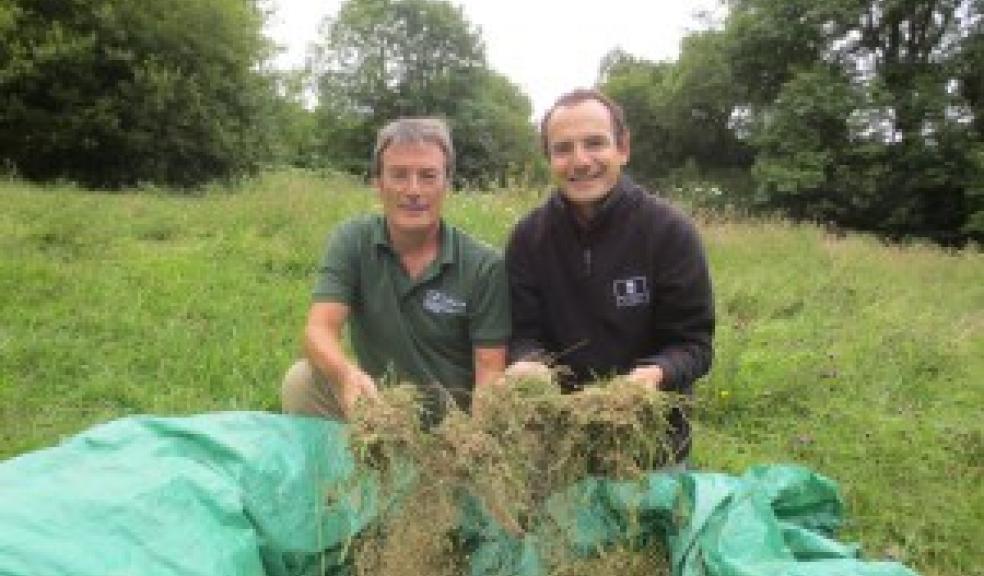
Using nature to keep the grass short
Plymouth’s grass land could be covered in yellow rattle as part of an experiment to use nature to keep the grass short in urban areas.
Plymouth City Council and Devon Wildlife Trust have been harvesting yellow rattle seed from Efford Marsh Local Nature Reserve and they plan to use the seed to sow in grasslands across the city.
The flower is semi-parasitic and gets its nutrients from grasses, suppressing grass growth and allowing other wildflower species to take its place.
Devon Wildlife Trust’s urban ranger bought a wildflower seed harvester to Efford Marsh Local Nature Reserve and the compact machine was towed by a quad-bike to harvest the seed heads.
Once harvested, the seeds will be dried and in the autumn will be scattered across several species-poor grassland sites in the city, including Ernesettle Creek and King’s Tamerton Wood, with the help of local residents.IMG_0474
Cabinet member for the environment, Councillor Mike Leaves said: “This is a fascinating project that could help the council and others to keep grass growth down.
“We have some incredible eye-catching wildflower sites here in Plymouth but with over 6 million square metres of grass to cut, we’re always keen to look at innovative projects which keeps the city green but tidy as well.”
Jeremy Sabel, Natural Infrastrucuture Officer said: “Yellow rattle acts as a botanical sheep. Introducing it to other wildflower meadows in the city will dramatically reduce the amount of grass growing and allow other wildflower species to take their place.”
More yellow rattle across city grass lands could make cutting easier and cheaper as there is less grass while meadows will look attractive and will be good for pollinators. Using a seed harvester saves money on buying seed and using local seed is good for genetic diversity.
The project is being run by Active Neighbourhoods, a partnership between the Council and Devon Wildlife Trust which ams to encourage residents to get in touch with the natural world and show the importance of great natural spaces on people’s wellbeing.
Devon Wildlife Trust’s Chief Executive, Harry Barton, said: “More than 90 per cent of the UK’s wildflower-rich lowland meadows have been lost in the last 100 years. But with increasing pressures on our countryside, green spaces in urban areas can play a crucial role in restoring what we’ve lost.
“By increasing the diversity of wildflowers in Plymouth, we can bring more natural colour into lives of thousands of people and provide a lifeline for the city’s bees, butterflies and other pollinators.”
For more information visit: www.facebook.com/ActiveNeighbourhoodsProject or @natureplymouth (Twitter)













